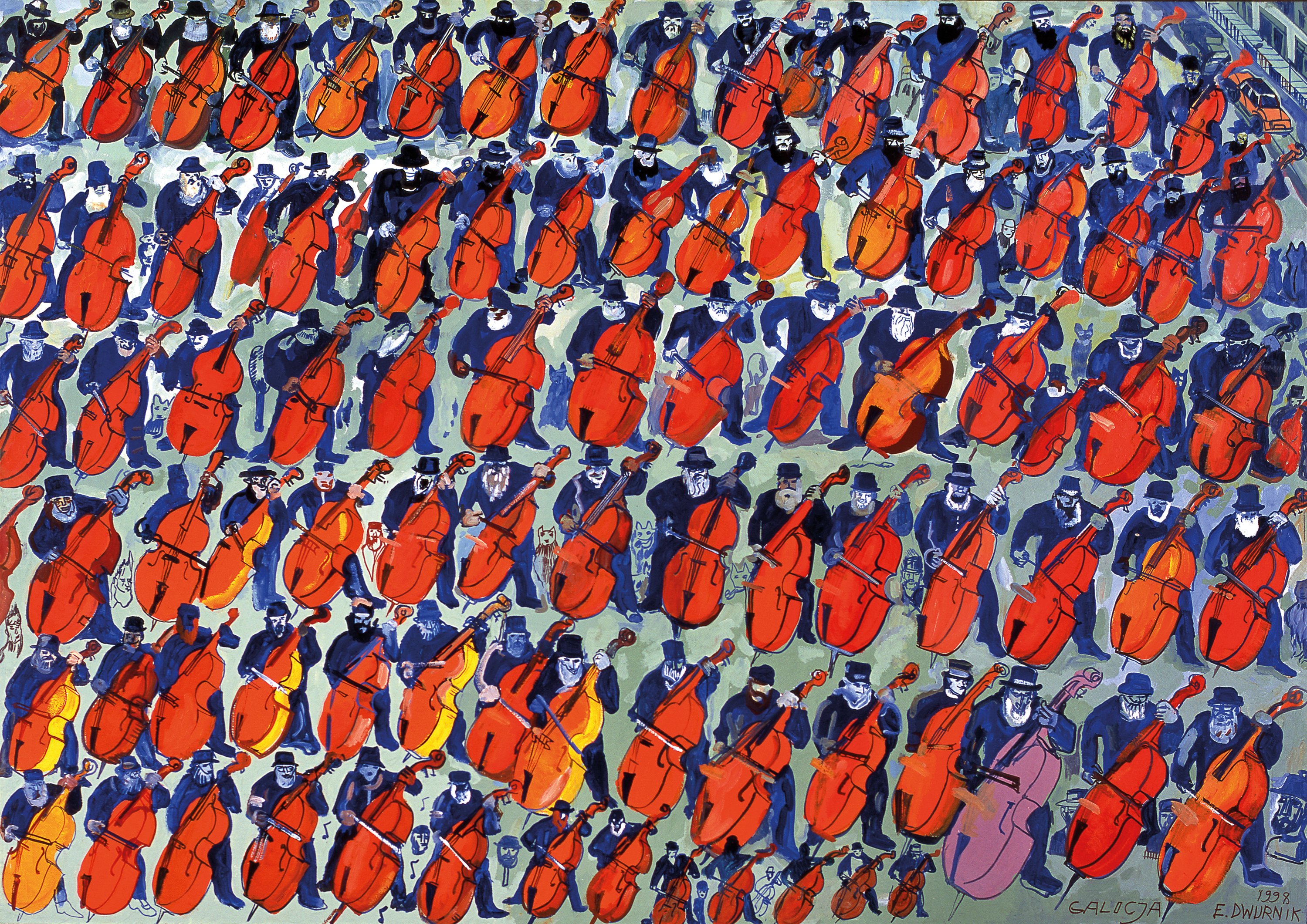Edward Dwurnik
Galicia
FSP ING 0020
The artwork Galicia is a blend of nostalgia for a world long gone and the country’s multi-cultural past, Jewish tradition included, with a self-imposed form of homework the artist does in his studio: “Paint one hundred musicians playing the double bass….” Dwurnik does not renounce his trademark components of the absurd or of blunt realism. He also asks questions about the role of painting, and the responsibilities of an artist to the world and its history. Double-bass players, solo or multiplied, have appeared in other versions of the piece as well.
Edward Dwurnik
b. 1943, Radzymin – d. 2018, Warsaw
Painter and draughtsman. A painting and graphic arts graduate of the Academy of Fine Arts in Warsaw, he was one of the most vibrant characters on the Polish art scene, with a presence in popular and mainstream culture. To Dwurnik, Nikifor Krynicki was the most important artist and inspiration in the choice of themes, working methods, and style. Dwurnik’s oeuvre, ironic and grotesque, chiefly includes expansive painting cycles, rendered with a fine paintbrush in semblance of Nikifor, with recurrent social, political, and social drama motifs, produced in multiple copies, often simultaneously. His bird’s-eye-view cityscapes created over a number of decades from the mid-1960s are the cycle he is best known for. He painted his first set of abstract paintings, which he called “pollocks”, in the early 2000s. He participated in Documenta 7 in Kassel in 1982. Winner of numerous awards, including the Cyprian Kamil Norwid Award (1981) and the Coutts Contemporary Art Foundation Award (1992). He lived and worked in Warsaw.
b. 1943, Radzymin – d. 2018, Warsaw
Painter and draughtsman. A painting and graphic arts graduate of the Academy of Fine Arts in Warsaw, he was one of the most vibrant characters on the Polish art scene, with a presence in popular and mainstream culture. To Dwurnik, Nikifor Krynicki was the most important artist and inspiration in the choice of themes, working methods, and style. Dwurnik’s oeuvre, ironic and grotesque, chiefly includes expansive painting cycles, rendered with a fine paintbrush in semblance of Nikifor, with recurrent social, political, and social drama motifs, produced in multiple copies, often simultaneously. His bird’s-eye-view cityscapes created over a number of decades from the mid-1960s are the cycle he is best known for. He painted his first set of abstract paintings, which he called “pollocks”, in the early 2000s. He participated in Documenta 7 in Kassel in 1982. Winner of numerous awards, including the Cyprian Kamil Norwid Award (1981) and the Coutts Contemporary Art Foundation Award (1992). He lived and worked in Warsaw.
